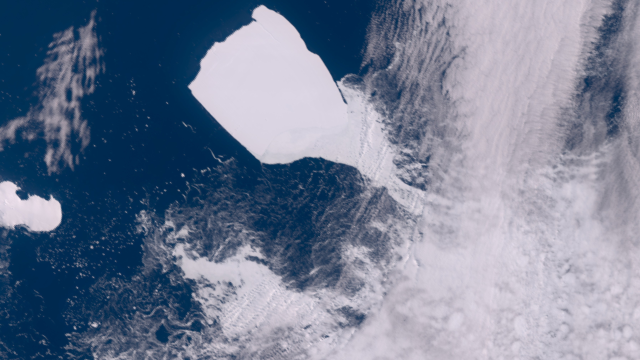Russia has discovered huge reserves of oil and gas in Antarctica, most of them in areas claimed by the United Kingdom, the British newspaper "Telegraph" reported.
The explorations are a prelude to bringing in drilling rigs to exploit the pristine region for fossil fuels.
Russian research vessels have reported reserves to Moscow of a total of 511 billion barrels of oil - about 10 times the entire 50-year output of the North Sea, according to evidence given last week to the UK Parliament's Environmental Audit Committee (EAC). .
The data is the result of a series of surveys carried out by the Alexander Karpinsky vessel operated by Rosgeo, the Russian agency responsible for discovering mineral reserves for commercial exploitation.
Antarctica should be protected by the 1959 Antarctic Treaty, which prohibits any development of minerals or oil. UK interests are overseen by the Foreign Office, but it has been accused of ignoring the emerging crisis.
Last week, junior minister David Rutley told the CEP that his ministry had decided to trust Russia's assurances that it was simply conducting scientific research, adding: "Russia has recently reaffirmed its commitment to key elements of the treaty."
Experts from the region disagree. They warn that a vote of confidence in Russia that it will stick to its obligations is naive - as its invasion of Ukraine has made clear.
Klaus Dodds, a professor of geopolitics at Royal Holloway College and an Antarctic expert who also testified, said Russia's activities were much closer to prospecting for oil and gas than real science.
“The Antarctic Treaty faces new challenges, not least from rogue actor Russia and an increasingly assertive China. Rosgeo is engaged in seismic surveys and other related geodetic activities... Russia's activities should be understood as a decision to undermine the norms related to seismic survey research and ultimately as a harbinger of upcoming mining of resources,” he said.
A CEP decision was taken to challenge the Foreign Office's management of the UK's Antarctic interests following publications in the South African online magazine Daily Maverick, which exposed Moscow's activities after its research vessel docked in Cape Town.
Similar issues are likely to be on the agenda in India later this month at the annual meeting of signatories to the Antarctic Treaty, where Russia will be challenged over its plans to extract fossil fuels.
The British Antarctic Territory (BART) is the largest and most southerly of the UK's 14 overseas territories and the least hospitable as 99% of its area is covered in ice.
In the prehistoric past, however, there was a warmer climate with vegetation that potentially allowed the formation of fossil fuel deposits.
The territory stretches northwest from the South Pole, encompassing the Antarctic Peninsula and the Weddell Sea - historically known as the site of Ernest Shackleton's Endurance shipwreck, and now for its potentially vast oil and gas reserves.
Most of the British Antarctic Territory is subject to competing claims by Argentina and Chile, which are sure to intensify if data from Russian seismic surveys are confirmed by subsequent drilling.
The Foreign Office co-funds the British Antarctic Service, which has five research and logistics stations and 250 staff, supported by the Royal Navy and the research vessel RSS David Attenborough - all of which are considered vital not just to science but to maintaining the claims of the United Kingdom to the region.
Other experts warn that the conflicts in Ukraine and the rivalry between China and the US are the biggest threats to Antarctica's future.
Professor Alan Hemmings, station commander of the British Antarctic Service during the Falklands War between Argentina and the UK in 1982, said rising tensions could destroy the treaty protecting the frozen continent from development. The treaty is up for review in 2048, but any party involved can opt out of it at any time.
Albert Luberas Bonaba, executive secretary of the Antarctic Treaty Secretariat based in Buenos Aires, Argentina, said such issues would be discussed at the organization's annual conference, but declined to comment on tensions surrounding Russia's activities./BGNES
Russia has discovered huge oil and gas reserves in Antarctica







